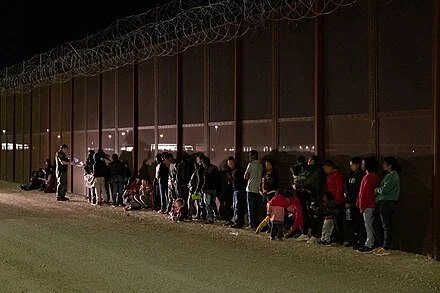President Obama is making a big mistake in seeking to protect millions of illegal aliens from prosecution by executive order.
While presidents have considerable legal discretion in individual deportation cases, giving amnesty to whole classes of people who broke the law in entering the U.S. stretches to the breaking point proper presidential powers. And remember that Congress has already debated — but not passed — legislative ideas similar to what the president would do, which also undermines his case.
Yes, Congress has long irresponsibly avoided fixing the immigration mess. No wonder the president is frustrated. Republicans, for their part, are torn between the campaign cash of businesses that love cheap illegal-immigrant labor, much of it at or below minimum wage, and nativist Republicans who feel culturally and economically swamped by the alien hordes. Cheap immigrant labor has helped undermine American wages, by some accounts as much as 8 percent.
Many illegal aliens are doing jobs that used to be considered entry jobs entirely for Americans, especially young Americans — a foot in the door of the economy. Some of these were summer jobs that helped pay a lot of college tuition.
Still, there’s no immediate new crisis in immigration. The numbers of those coming across the Mexican border have been declining lately.
That doesn’t mean that it’s not a very bad problem. But the situation doesn’t justify acting in legally dubious, delegitimizing ways that will tend to give a green light to more people to come here illegally, with economic and national-security implications.
If the president and the new Republican-led Congress cannot agree on immigration reform, then they should put off its resolution until, if necessary, one party controls Congress and the White House. Until then, here’s a simple proposal: More firmly enforce the laws on the books. To be fair, note that the Obama administration has deported record numbers of illegals.
ANOTHER THOUGHT on the mid-term elections: The Democrats’ biggest mistake was, out of fear of offending its big-money backers, it took no strong stand against those whom Franklin Roosevelt called “economic royalists” in pushing for a better deal for the middle class.
This is what happened back when Democrats failed to fight for extending Medicare to everyone, rather than coming up with the labyrinthine (and GOP-inspired!) Affordable Care Act. The Democrats need a clear message. In the last election, the perception was that the Democrats really didn’t stand for anything. The high-voting Republicans clearly stood for something: To block Barack Obama at every turn. The president may be standing for something in his immigration plans, but he’s doing it in the wrong way.
AS A RESIDENT of Brooklyn in the ’70s, when New York City was falling apart, I enjoyed the recent Associated Press article about that borough (“Once mocked, Brooklyn emerges as global symbol”).
It has become a symbol of innovation, renewal, gentrification, locavore restaurants and tech startups, with many young Silicon Valleyish types. (One of my daughters recently left Brooklyn for Los Angeles complaining that she was tired of living in a place “where everyone is 25.”)
Somewhat similar transformations have occurred in other old urban areas, including parts of Providence. And even Detroit may be at the very start of a revival.
When I worked in Lower Manhattan and lived in Brooklyn my co-workers acted as if I were commuting to Outer Mongolia. Now it’s where Wall Street types want to be. Never give up on a city!
IF THERE’S one thing that Republicans and Democrats ought to agree on, it’s the nation’s physical infrastructure, especially transportation. And yet key parts of it are falling apart.
Consider the 100-year-old Portal Bridge, part of the underfunded but very heavily traveled Northeast Corridor of Amtrak and local commuter trains. New Jersey Transit, which runs the Garden State’s commuter trains, says that problems on the old bridge caused more than 200 delays from the start of 2013-through July 2014! And that’s far from the only bottleneck on the Northeast Corridor. The aging system (which also needs more tracks) is also a particular mess around Baltimore, as those awaiting northbound trains in New York’s squalid, claustrophobia-inducing Penn Station can especially confirm.
Now there’s a belated plan to replace the Portal Bridge. But with much of American commerce flowing on the Northeast Corridor, the whole stretch must be rebuilt in the next decades. Even with all its flaws (especially when compared with European service), Northeast Corridor train service is a huge wealth creator. If fixed, it can be a much bigger one.
READ Richard Norton Smith’s “On His Own Terms: A Life of Nelson Rockefeller,’’ about the charismatic, dyslexic master builder, arts patron and would-be president, who was decisive about many things but not about how to run for president. Rockefeller once said: "I'm not bright. I'm imaginative.'' But he was very bright sometimes, and usually very imaginative -- sometimes too much so.
For years, he represented the GOP's "Eastern Establishment,'' but his party moved south and west on him. By 1964, when asked by backers to call in the “Eastern Establishment,” he replied: “You’re looking at it, buddy. I’m all that’s left.”
Robert Whitcomb oversees New England Diary.
























